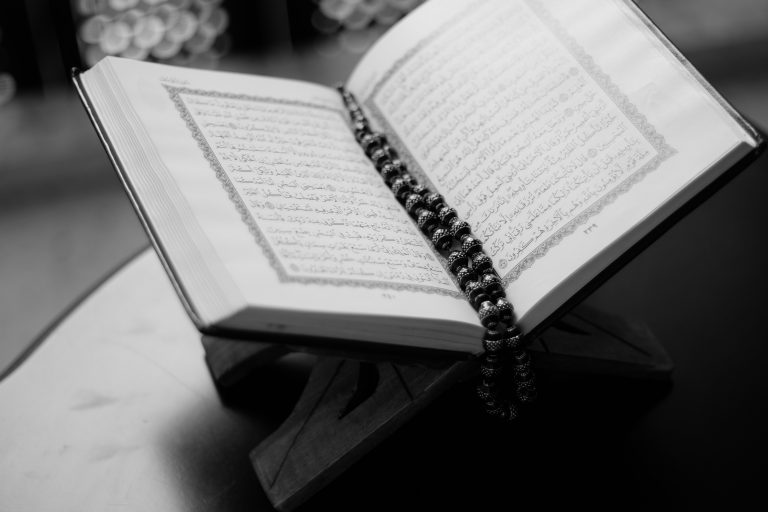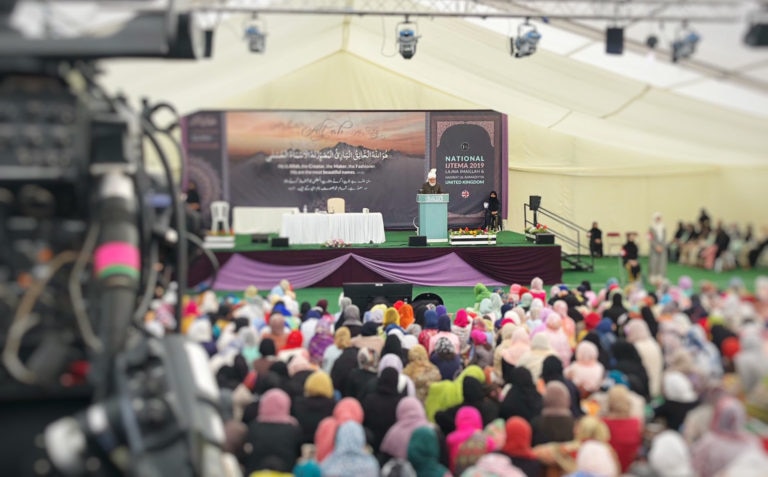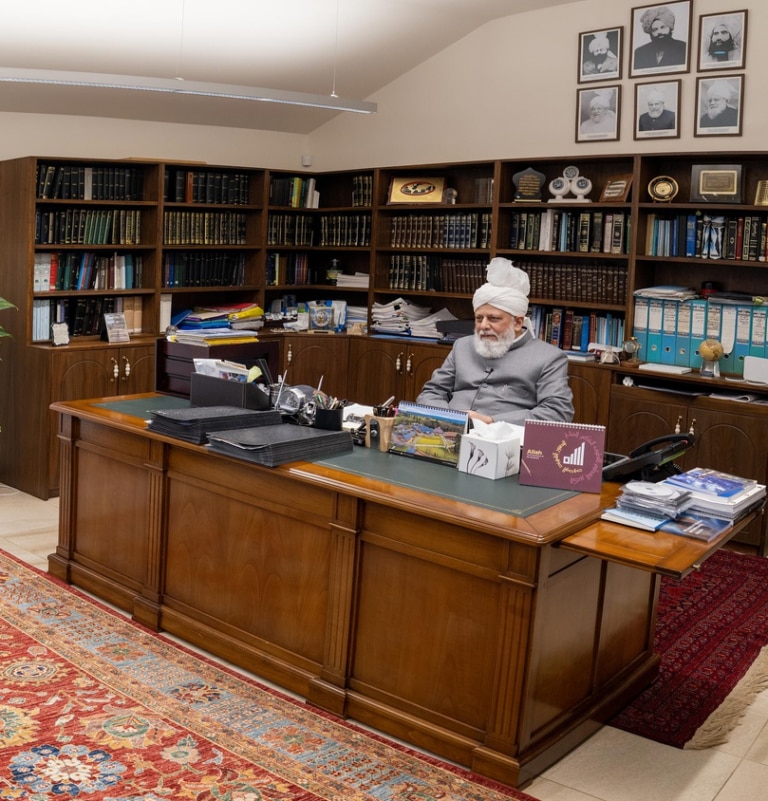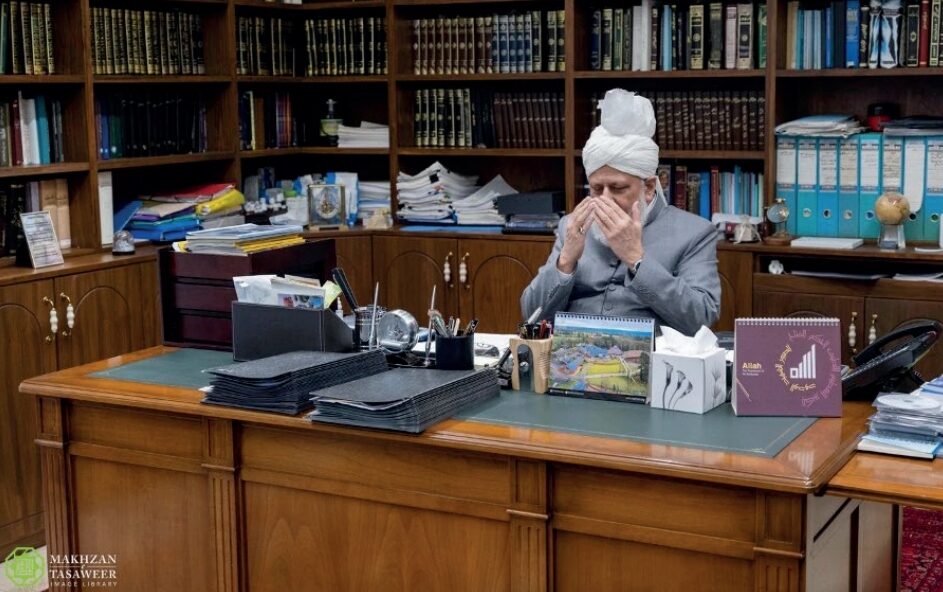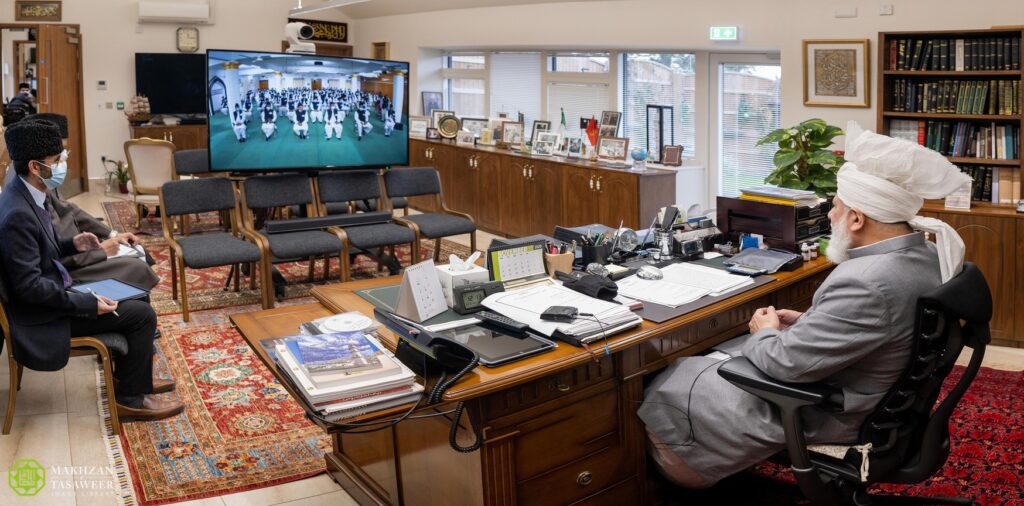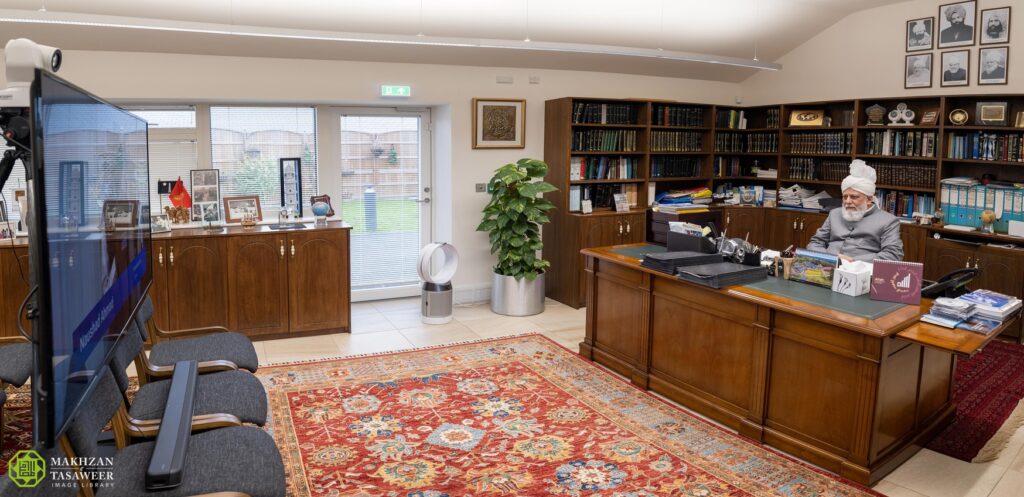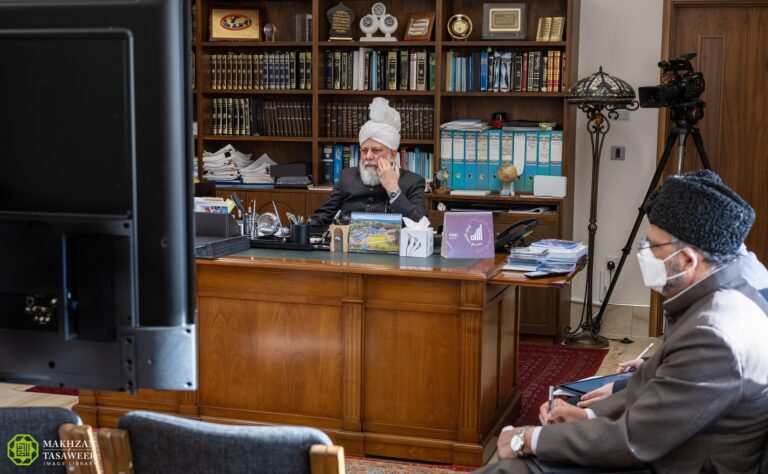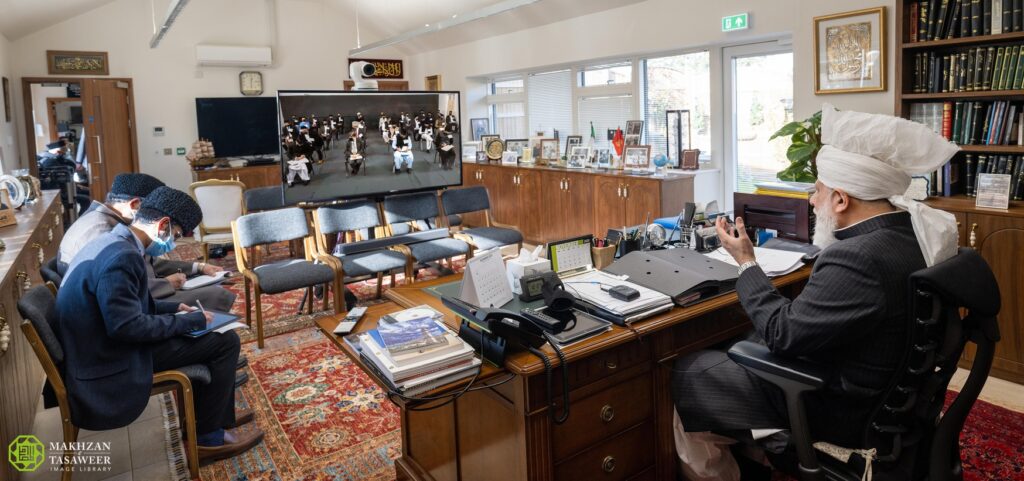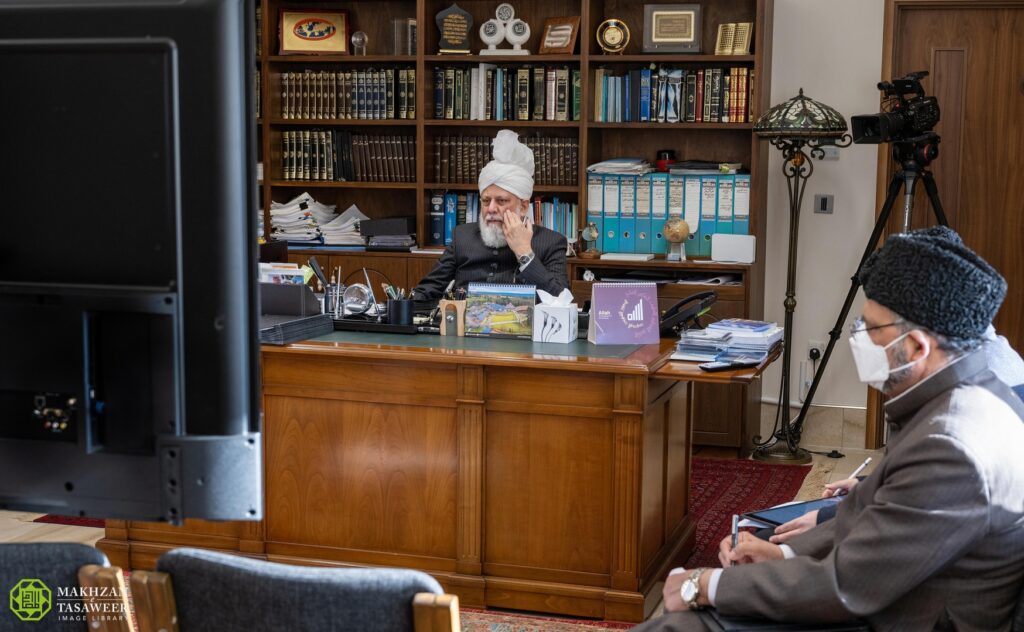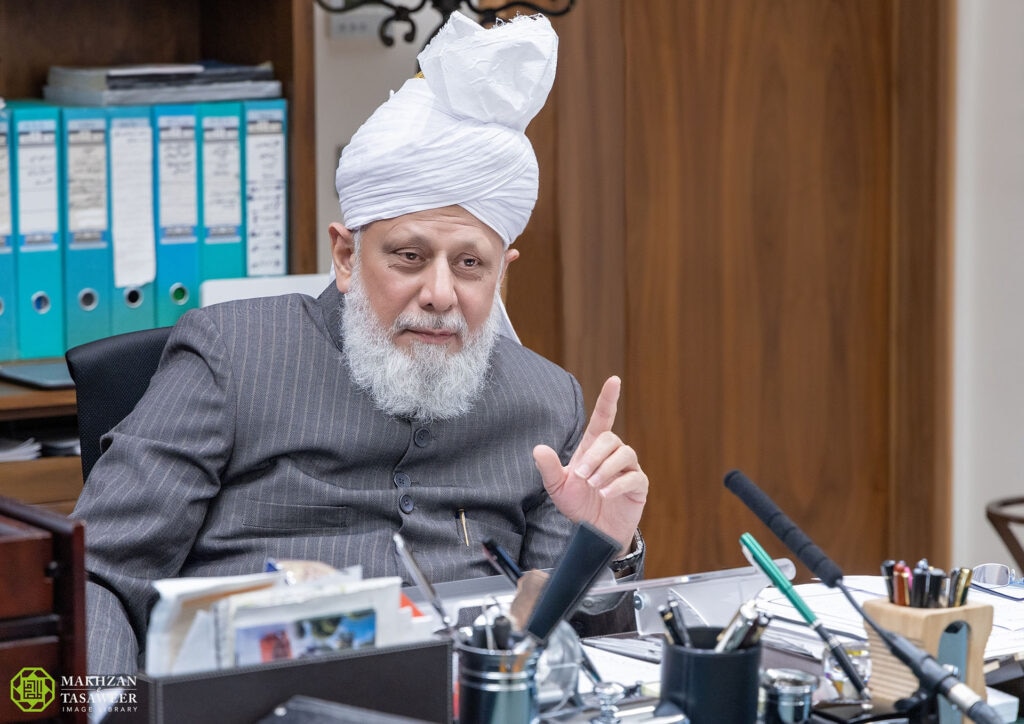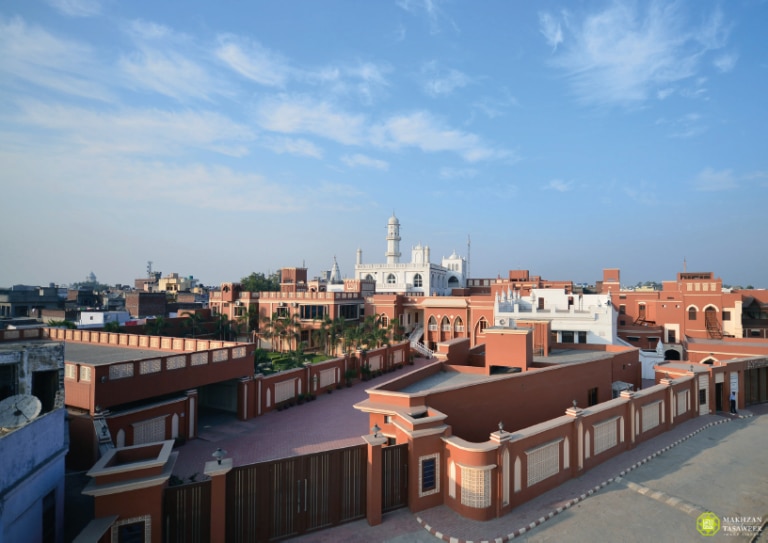Click here for Part I
Guidance regarding basic Islamic issues that Hazrat Amirul Momineen, Khalifatul Masih Vaa has given at various occasions in his written correspondence and during various MTA programmes is being officially published below for everyone’s benefit
Zaheer Ahmad Khan, Records Department, Private Secretariat, London
Halal and haram
In a letter, Huzooraa was asked on what basis the meat of various animals had been declared haram in Islam. Huzooraa, in his letter dated 11 April 2016, gave the following reply:
The Islamic principle behind something being halal or haram is that everything that has not been explicitly declared haram by the Shariah is considered permissible. Hence, the Promised Messiahas states:
اصل اشیاء میں حلّت ہے حرمت جب تک نص قطعی سے ثابت نہ ہو تب تک نہیں ہوتی
“All things are halal in essence. Unlawfulness does not apply until it is categorically established through scripture.” (Malfuzat, Vol. 2, p. 474)
The Holy Quran has declared carrion, the blood which pours out when an animal is slaughtered or wounded, the flesh of swine and such animals on which the name of anyone other than Allah is invoked as haram. (Surah al-An‘am, Ch.6: V.146)
These four things mentioned in the Holy Quran are called haram. Moreover, the Holy Prophetsa has prohibited the consumption of certain things. They are called mamnu‘. They include, for example, beasts of prey – be they raptors or other predators etc. The prohibition of such animals is based on ahadith. Hazrat Ibn Abbasra states:
نَھَی رَسُولُ اللہِ صلی اللہ علیہ وسلم عَنْ کُلّ ذِی نَابٍ مِنَ السِّبَاعِ وَعَنْ کُلِّ ذِی مِخْلَبٍ مِنَ الطَّیْرِ
“Allah’s Messengersa prohibited the eating of all fanged beasts of prey and all birds that have talons.” (Sahih Muslim, Kitab as-Sa‘idi waz-Zaba‘ihi wa maa Yu‘kalu min al-Hayawani, Babu Tahrimi Akli …)
Likewise, the following is reported in another hadith:
عَنِ ابْنِ عُمَرَ، أَنَّ رَسُولَ اللہِ صلی اللہ علیہ وسلم نَھَی یَوْمَ خَیْبَرَ عَنْ لُحُوْمِ الْحُمُرِ الأھْلِیَّۃِ
Hazrat Abdullah Ibn Umarra narrates, “On the occasion of the Battle of Khaibar, Allah’s Messengersa forbade the eating of the meat of domesticated donkeys.” (Sahih al-Bukhari, Kitab al-Maghazi, Bab Ghazwati Khaibar)
While explaining the terms haram and mamnu‘, Hazrat Khalifatul Masih IIra states:
“One should remember that the consumption of two kinds of things has been prohibited by the Islamic Shariah; firstly, those that are haram and secondly, those that are mamnu‘. Although, linguistically, the term haram encompasses both the kinds, but the Holy Quran has only declared four things as haram in this verse (Surah al-Baqarah, Ch.2: V.174) i.e. carrion, blood, the flesh of swine and all those things on which the name of anything other than Allah is invoked. Then, there are some additional things, the consumption of which has been prohibited by the shariah. Although, those things would fall in the category of mamnu‘, but they would not be termed haram as per the Quranic terminology …
“These instructions are not contradictory to the message of this verse or any of the other verses. Just as there are several kinds of dos [awamir] – some are farz, others are wajib and yet others are sunnah – there are also several kinds of don’ts [nahi]; there is nahi-e-muharramah, then there is nahi-e-mani‘ah and there is also nahi-e-tanzihi. Thus, four things are haram and the rest are mamnu‘, the majority of which falls under the category of nahi-e-tanzihi. This means that it would be better if one kept away from them.
“The relation between haram and mamnu‘ is the same as the relation between farz and wajib. Hence, the unlawfulness of the things that the Holy Quran has declared haram is very strict, whereas the unlawfulness of the things that the Holy Prophetsa has forbidden is relatively less strict.
“As I mentioned before, in terms of obligations, they can be compared to farz, wajib and sunnah. Haram functions like farz, while mamnu‘ is similar to wajib. Just as the difference between farz and wajib is determined by the punishment that is meted out for violating them, likewise, if someone was to consume the things prohibited in the Holy Quran, the punishment would be more severe. In addition, if one was to consume the things that the Holy Prophetsa has prohibited, one would receive a relatively lower punishment. Nevertheless, both the violations are punishable and would draw the displeasure of Allah the Exalted.
“When one commits a haram act, it affects his faith, the certain result of which is sin. However, the consumption of other things does not necessarily result in sin and faithlessness. Hence, you will see that there are some sects among Muslims such as the Malikis who declare these things permissible by way of interpretation and they eat them. It does not affect their faith, nor does it cause any faithlessness and sin among them. In fact, in the past, there have even been some auliya-ullah [saints] among them. However, one will not find any waliullah who eats the flesh of swine or carrion.
“Thus, unlawfulness [hurmat] also has some degrees. In addition to these four things, all others are mamnu‘ things, which are referred to as haram in popular culture. Otherwise, they are not haram as per the Quranic terminology.” (Tafsir-e-Kabir, Vol. 2, p. 340)
While explaining the philosophy behind haram and halal, Hazrat Khalifatul Masih Ira states:
“The Holy Quran states:
وَ لَا تَقُوۡلُوۡا لِمَا تَصِفُ اَلۡسِنَتُکُمُ الۡکَذِبَ ہٰذَا حَلٰلٌ وَّ ہٰذَا حَرَامٌ لِّتَفۡتَرُوۡا عَلَی اللّٰہِ الۡکَذِبَ ؕ اِنَّ الَّذِیۡنَ یَفۡتَرُوۡنَ عَلَی اللّٰہِ الۡکَذِبَ لَا یُفۡلِحُوۡنَ
“Saying, ‘This is halal and that is haram’ aimlessly is tantamount to forging a lie against God. God has declared:
حَرَّمَ عَلَیۡکُمُ الۡمَیۡتَۃَ وَ الدَّمَ وَ لَحۡمَ الۡخِنۡزِیۡرِ وَ مَاۤ اُہِلَّ بِہٖ لِغَیۡرِ اللہِ
“In a hadith, the Holy Prophetsa said that beasts of prey were haram. This includes all raptors and other predators etc. Now, nobody has the authority to designate things as halal or haram beyond this. However, since there are thousands of animals in the world, the problem arose as to which ones could be consumed and which ones not. Allah the Exalted has solved this problem very easily by saying:
فَکُلُوۡا مِمَّا رَزَقَکُمُ اللّٰہُ حَلٰلًا طَیِّبًا ۪ وَّ اشۡکُرُوۡا نِعۡمَتَ اللّٰہِ اِنۡ کُنۡتُمۡ اِیَّاہُ تَعۡبُدُوۡنَ
“‘Eat lawful [halal] and pure [tayyib] things. Hence, we have been told to eat things that are tayyib, meaning that everywhere and among every nation, people should eat that which is considered good and pure and what is consumed by decent and civilised people. It is essential to keep all the exceptions that have been mentioned before in mind while doing so. There may not seem to be any objection against eating the meat of parrots, but I do not eat it because the decent people of our country do not do so.
“Once, a gentleman cooked a lizard and offered it to me. I told him to feel free to eat it on my table, but I would not eat it because the decent people [of my country] did not eat it.” (Badr, no. 19, Vol. 10, 9 March 1911, p. 1)
Women’s status in Islam
Someone mentioned their confusions with regard to equality between men and women in Islam and requested Huzooraa for guidance on some of the Islamic commandments. Huzooraa, in his letter dated 11 April 2016, gave the following reply to the raised issues:
Your confusions which you have mentioned in your letter have risen due to not understanding Islamic teachings and human nature. Islam has never claimed that men and women were absolutely equal in every sense. Let alone Islam, even human nature rejects this notion that men and women be declared equal in every sense. Indeed, Islam teaches that just as Allah the Exalted grants His blessings and favours to men as a result of their good deeds, in the same way He also makes women the inheritors of His blessings and favours. Thus, He states:
فَاسۡتَجَابَ لَہُمۡ رَبُّہُمۡ اَنِّیۡ لَاۤ اُضِیۡعُ عَمَلَ عَامِلٍ مِّنۡکُمۡ مِّنۡ ذَکَرٍ اَوۡ اُنۡثٰی ۚ بَعۡضُکُمۡ مِّنۡۢ بَعۡضٍ ۚ فَالَّذِیۡنَ ہَاجَرُوۡا وَ اُخۡرِجُوۡا مِنۡ دِیَارِہِمۡ وَ اُوۡذُوۡا فِیۡ سَبِیۡلِیۡ وَ قٰتَلُوۡا وَ قُتِلُوۡا لَاُکَفِّرَنَّ عَنۡہُمۡ سَیِّاٰتِہِمۡ وَ لَاُدۡخِلَنَّہُمۡ جَنّٰتٍ تَجۡرِیۡ مِنۡ تَحۡتِہَا الۡاَنۡہٰرُ ۚ ثَوَابًا مِّنۡ عِنۡدِ اللّٰہِ ؕ وَ اللّٰہُ عِنۡدَہٗ حُسۡنُ الثَّوَابِ
“So their Lord answered their prayers, saying, ‘I will allow not the work of any worker from among you, whether male or female, to be lost. You are from one another. Those, therefore, who have emigrated, and have been driven out from their homes, and have been persecuted in My cause, and have fought and been killed, I will surely remove from them their evils and will cause them to enter Gardens through which streams flow – a reward from Allah, and with Allah is the best of rewards.” (Surah Al-e-Imran, Ch.3: V.196)
As for the testimony of men and women, in such matters that are relevant to men and are not directly related to women, if the men appointed to testify are not available, then the reason for appointing two women along with a man is that such matters are not directly linked to women. Hence, if the woman who is testifying forgets the details of her testimony, then the other woman can remind her.
In other words, even in this scenario, the actual testimony is of one woman only. The second woman is only appointed as a precautionary measure to remind the first one lest she forgets because such issues are not directly related to her. The text of the Holy Quran also supports this understanding. Hence, it says:
یٰۤاَیُّہَا الَّذِیۡنَ اٰمَنُوۡۤا اِذَا تَدَایَنۡتُمۡ بِدَیۡنٍ اِلٰۤی اَجَلٍ مُّسَمًّی فَاکۡتُبُوۡہُ ؕ ….. وَ اسۡتَشۡہِدُوۡا شَہِیۡدَیۡنِ مِنۡ رِّجَالِکُمۡ ۚ فَاِنۡ لَّمۡ یَکُوۡنَا رَجُلَیۡنِ فَرَجُلٌ وَّ امۡرَاَتٰنِ مِمَّنۡ تَرۡضَوۡنَ مِنَ الشُّہَدَآءِ اَنۡ تَضِلَّ اِحۡدٰٮہُمَا فَتُذَکِّرَ اِحۡدٰٮہُمَا الۡاُخۡرٰى
“O ye who believe! when you borrow one from another for a fixed period, then write it down … And call two witnesses from among your men; and if two men be not available, then a man and two women, of such as you like as witnesses, so that if either of two women should err in memory, then one may remind the other.” (Surah al-Baqarah, Ch.2: V.283)
As far as such matters are concerned that are directly related to women, it is proven from hadith that the Holy Prophetsa separated a married couple on account of the testimony of a single woman who said that she had nursed both the boy and the girl in their childhood. Hence, Hazrat Uqbahra bin Harith relates that he had married the daughter of Abu Ihab bin Aziz. Later on, a woman came to him and said, “I have nursed Uqba and the woman whom he married. (Hence, they are foster-siblings and their marriage is not right.)” Uqba said to her, “Neither did I know that you had nursed me, nor did you inform me before about this.” Then Uqbah mounted his ride and went to see Allah’s Messengersa at Medina; he asked him about (the issue at hand). Allah’s Messengersa said, “How can you keep her as a wife when it has been said [that she is your foster-sister]?” Thus, Uqba divorced her and she married another man. (Sahih al-Bukhari, Kitab al-Ilm, Bab ar-Rihlati fil Mas‘alah al-Nazilati wa Ta‘lim-i-Ahlihi)
As far as talaq and khula are concerned, there is no difference in them either. Rather, it is a favour of Islam that it has not only given men the right to divorce, but has also given women the right to obtain khula. Men and women have been given equal rights in this matter too. When a man divorces a woman, he is made to pay all kinds of financial dues to her.
Moreover, whatever financial support he may have given to her before, he cannot take any of it back. Likewise, when a woman obtains khula, without any fault on the husband’s part, she also has to pay back some of the financial dues such as the dowry money etc. However, if it is proven that the woman is obtaining khula due to a fault on the husband’s part, then the woman has been given this additional benefit under such circumstances that she remains the owner of the dowry.
Nevertheless, the decision on this is made by Dar-ul-Qaza after investigating all the circumstances. In matters such as marriage among People of the Book, the need to have a wali and the permission for polygamy, in fact, the security, dignity and honour of women have been taken into consideration.
Allah the Exalted has generally made women to be more delicate and being impressionable is part of their nature. Thus, by not permitting a Muslim woman to marry a man from the People of the Book, their faith has been safeguarded. Among the matrimonial matters is also that in addition to the willingness of the girl, the agreement of the wali is required.
In addition to many other benefits of this, one purpose is also to provide a helper and a guardian to the woman so that after her marriage, her in-laws are well aware that she is not alone and that there is someone looking after her interests. By allowing women to only marry once at a time, Islam has preserved her sanctity. Islam has given this commandment in exact accordance with human nature and with the protective jealousy [ghairah] that is intrinsic to humans. The hadith which mentions an abundance of women in hell has been mistranslated by people. That hadith does not mean at all that there would be more women in hell; rather, the Holy Prophetsa said:
أُرِيتُ النَّار فَإِذَا أَكْثَرُ أَهْلِهَا النِّسَاءُ يَكْفُرْنَ
“I was shown hell and I saw that there was an abundance of such women who were ungrateful to their husbands.”
It means that the majority of women, who were in hell due to their misdeeds, were such who were ungrateful to their husbands. Hence, firstly, this hadith does not mean that there will be more women than men in hell. Secondly, the reason why those women will be in hell has been mentioned. They are such women who repeatedly deny the favours of God Almighty, which He bestowed upon them through their husbands.
In contrast to this, tidings of paradise under the feet of pious and righteous women have been given in ahadith, which has not been given about any man. Moreover, Islam has granted men and women certain rights or designated certain duties to them according to their temperaments. It has obliged the man to work and fulfil all the needs of the household and has instructed the woman to safeguard the house and the children and look after their upbringing.
In other words, man was chosen to toil outside in accordance with his capabilities while the woman was given the leadership over the house in accordance with her nature and in view of her dignity. There is no room for any doubt in the saying of the Holy Prophetsa that women are in a way weaker in terms of faith and mental strength because this saying is in exact accordance with the nature of women.
As for the weakness of faith, the Holy Prophetsa has himself explained this by saying that a woman goes through a number of days during her adolescence where she is relieved of all kinds of worship. If we reflect, this too is in a way a favour of God Almighty on her.
The saying with regard to the weakness of mental strength is also not intended to be disparaging; rather, it refers to the simplicity and gullibility of women. The proof for the fact that women are gullible has been provided by themselves in this modern world. The way the Western man has misused women by offering them the delusion of freedom is self-evident and is a proof of the truthfulness of the saying of the Holy Prophet Muhammadsa, the chosen one, the most truthful of all. Men have kicked her out of the four walls of her home and thrown her into the market in order to fulfil their own lust. While Islam laid the responsibility of breadwinning upon men, men have misused her and her gullibility by delegating their financial responsibility to her.
Hence, she is having to toil like men in places where she has to deal with all kinds of men who sometimes try to cast glances at her from various angles in order to fulfil their lust. If one looks further, one sees that the claim of the Western world of the equality of men and women is a hollow claim.
There is hardly any country in the Western world where there is an equal number of women and men in the parliamentary system that runs the machinery of the government. In the same Western countries, at scores of places, the financial packages given to male employees are generally not given to women who perform the same jobs.
All these things are clear evidence of the gullibility of women. As far as the declaring of a husband as qawwam by the Holy Quran is concerned, the Holy Quran has itself given reasons for it. One reason is that in order to run the system of household, one party has been given a rank above the other. The other reason that has been mentioned is that he spends on the wife from his wealth. The reasoning behind giving a rank to one party over the other is in exact accordance with human nature because if we look at the system of the world, we will find a social order where everyone is relatively above someone.
If everyone in the world was equal or let us say if all were kings, the system of the world would not function even for a day. Hence, Allah the Exalted has made some people shorter and others taller, some richer and others poorer. We see that every country has a cabinet to run the system of the government.
If all people of a country formed the cabinet, such a country would not be able to function. Likewise, in order to run the system of the household, Allah the Exalted has given relatively more authority to men. However, where the head of a government or the cabinet has more authority, they also have relatively more obligations.
Likewise, Islam has assigned more obligations to the husband. Thus, in terms of rights and responsibilities of men and women, the Islamic system is in exact accordance with nature and there are no holes in it.
Purdah and close relatives
Huzooraa was requested for guidance with regard to observing purdah before paternal or maternal uncles with reference to a quote of Hazrat Khalifatul Masih IVrh from a question and answer session.
Upon this, Huzooraa, in his letter dated 1 June 2020, gave the following reply:
The statement of Hazrat Khalifatul Masih IVrh that you have mentioned in your letter is based on verse 32 of Surah al-Nur and it was made in reply to a question during a question and answer session. It is correct that the relations mentioned in this verse before whom women are excused from observing purdah do not include paternal or the maternal uncles. However, both of them are included among the mahram relations as Huzoorrh also mentioned in his statement.
Moreover, this is also proven by the Quranic commandment mentioned in Surah al-Nisa because marriage is considered illegal with both of them.
Moreover, it is also reported by Hazrat Aishara in ahadith that when she asked the Holy Prophetsa, he guided her not to observe purdah before her paternal uncle.
However, alongside this, it is also essential to keep this aspect of purdah in mind that according to Islamic teachings, the form of leave from purdah in case of mahram relations varies depending on the closeness of each relationship.
Hence, the form of leave from purdah before the mahram relations mentioned in Surah al-Nur will change from relation to relation. That is why the leave from purdah in case of a husband will be different from the leave from purdah in case of a father, a son or a brother etc. who have also been mentioned in the same verse.
Thus, just as there are various modes of purdah before the relations mentioned in this verse, likewise there is a variation in the leave from purdah before other mahram relations. This is also the essence of what Hazrat Khalifatul Masih IVrh is explaining in the statement under discussion, that paternal or maternal uncles are not among the relations who live with one under the same roof. They come from outside. Although they count as part of the mahram relations, but when they visit one’s home, the ladies should be relatively more cautious with regard to purdah, as compared to the purdah before men who live under the same roof such as a husband, a father or a son etc. which would be relatively relaxed.
Although one does not need to cover the face before them, but one is instructed to sit before them in a composed manner while covering the head and the chest.
Hence, this is the issue which Hazrat Khalifatul Masih IVrh is explaining. It is not that he is instructing to observe the usual purdah before paternal and maternal uncles.
Click here for Part III

